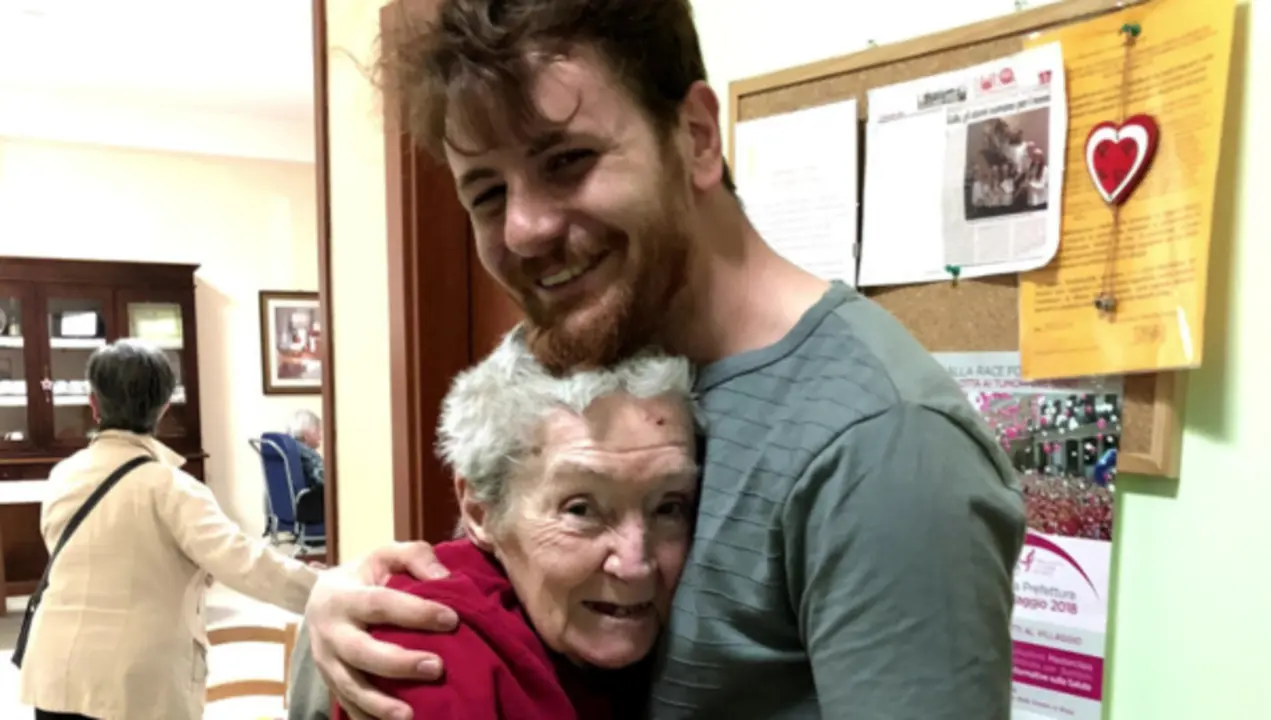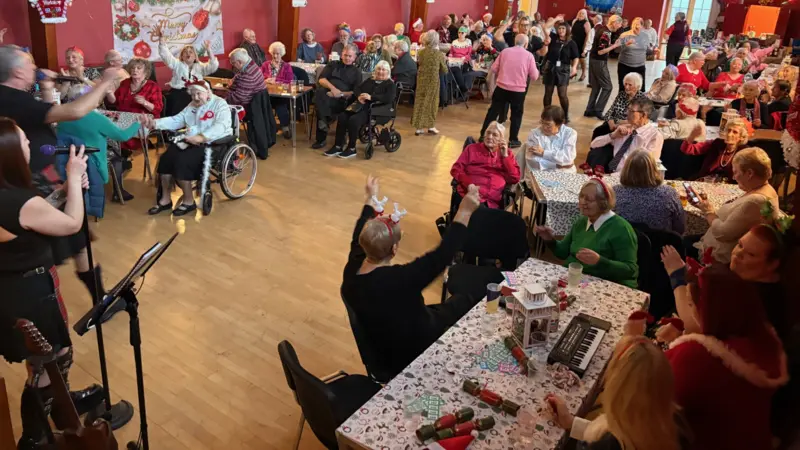Volunteering with Age Scotland: A personal journey

At Age Scotland, we're lucky to be supported by a dedicated team of volunteers who help deliver our vital services to older people.
To mark International Day of Friendship, we spoke to Jacopo Mancini about his experience volunteering with our friendship services. He kindly shares his story below.
I’ve always believed in the value of community, even before I called it “volunteering.” Growing up in Italy, I helped wherever I could — from working in a dog kennel to organising local food festivals and helping build a community internet radio. At the time, it was about being part of something, working together, and enjoying the feeling of achieving a shared goal.
But my understanding of volunteering changed when my grandma moved into a care home.
She was the strongest person I have ever known — a woman born in the 1920s who raised my father on her own in a small countryside house in the south of Italy. Back then, there was no running water or electricity. She wasn’t just a mother — she was also a teacher, working in rural schoolhouses and educating farmers’ children with a patience and determination that made her known as the best in the region.
My love for classical music, my deep respect for nature and animals, my work ethic — all of that comes from her. She was kind, wise, and fiercely independent. To me, she was a hero.
When the time came for her to receive professional care that my mum, my sister and I couldn’t provide, I struggled. The care home was peaceful and not far away, but I felt a deep guilt — not for placing her there, but for the time I didn’t spend with her. The stories I never asked her to tell. The wisdom I didn’t think to capture.
One day while visiting, another resident mistook me for her grandson. She smiled, held my arm gently, and laughed. I had never met her before. A carer later told me this woman had been living there for years and rarely received visitors. That moment stuck with me. I started saying hello to others in the home too. Sometimes the conversations repeated, sometimes they were brief, but the smiles — the spark in their eyes — were real. That half hour of company could be the highlight of their day.
In early 2020, I returned to Edinburgh after the holidays. I had just moved into my own flat — living alone for the first time in my life. It was a personal milestone, and I felt proud. Proud of what I’d achieved. Proud of the work and sacrifices that had brought me there.
And then the world shut down.
COVID-19 arrived. My grandmother passed away during lockdown. No visitors were allowed. I couldn’t even attend her funeral. A massive part of my childhood — of who I am — vanished.
Suddenly, I was alone in my flat, isolated, grieving — and it hit me how deeply loneliness can hurt. I thought about my grandmother, about the other residents in that care home, about all the older people, like my grandmother, who had lived full lives, raised families, built communities, achieved so much — only to end up forgotten, reduced to a name on a care rota. And I realised something that felt so profoundly unfair: that the older people we so easily overlook were once proud, accomplished, independent — just like I was in that moment. Just like we all hope to be.
We celebrate achievement when we’re young, but often ignore it in the elderly. That disconnect, that injustice, stayed with me.
It also made me reflect on my other grandparents — the ones I lost during my teenage years. Back then, I didn’t yet have the awareness to truly appreciate their presence. I now carry that guilt too — for all the stories I never heard, for the love I never fully returned.
During lockdown all was closed. A side hustle, I began caring part-time for an elderly woman in Edinburgh who had stopped leaving her flat during the pandemic. She lived in near-total isolation and had a diagnosis of schizophrenia. Carers came and went quickly, but I stayed longer. We talked — about her life, her passions, music, philosophy. One Christmas, she played the piano for me. I saw a different side of her: dignified, intelligent, full of life. She once gave me a printout of her life achievements — she was so proud. Eventually, when the company didn't renew my part time role, I had to step back. But we stayed in touch, and she remains one of the people who shaped my path here in Edinburgh.
That experience gave me clarity: I wanted to do more for older people. When the opportunity to volunteer with Age Scotland came through my workplace, I didn’t hesitate.
During our weekly calls, we talk about everything — memories, music, animals, family, or simply how the day has been. I also recently became a Community Connector, I help them find local activities, small sources of joy and connection. The most rewarding part? Hearing the warmth in their voice when they say, “I’m so glad you called.”
Age Scotland’s Friendship Services are more than just phone calls. They’re bridges — ways to honour lives that have been full, rich, and often overlooked. They give meaning, not just to the people we support, but to us as well.
Every time I speak to someone, I carry my grandmother with me — her strength, her music, her wisdom. Volunteering is my way of honouring her, and all those like her whose voices still deserve to be heard.
Feeling inspired?
We're always looking for volunteers to help support our Friendship Services. If you enjoy a chat and have just a few free hours each week, we'd love to have you as part of the team. Click here to find out more today.


